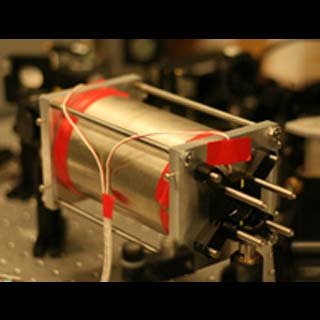
This portable magnetometer apparently shows unprecedented sensitivity to magnetic fluctuations. This should enable it to detect a wide range of conditions counting heart problems in fetuses. The highlight of the device is its seeming ability to diagnose conditions earlier than present diagnostic techniques like ultrasound, ECG and existing cardiac magnetometers.
Anticipated to be smaller and also simpler to operate, the device should allow users to garner more information. It is also expected to be cheaper than other currently available devices. In addition to this, the device for the first time will be handled by skilled nurses as well as doctors. Giving them the ability to carry out heart scans, it should take off the pressure on hospital waiting lists.
Supposedly functioning through clothes, it will cut the time needed to perform scans and also eliminate the need for patients to undress for an examination. Besides, its portability factor will allow it to be taken out to a patient’s home as well.
“The new system gets round previous difficulties by putting the actual detector in its own magnetic shield,†mentioned Professor Ben Varcoe who is leading the research team. “The sensor placed over the area being examined lives outside the shielded area and transmits signals into the detector. The sensor head is made up of a series of coils that cancel out unwanted signals and amplifies the signals that are needed. So the tiny magnetic fields produced by a person’s heart can be transmitted into the heavily shielded environment. What we’ve been able to do is combine existing technology from the areas of atomic physics and medical physics in a completely unique way.â€
“Early detection of heart conditions improves the prospects for successful treatment. This system will also quickly identify people who need immediate treatment,†shares Professor Varcoe. “But our device won’t just benefit patients – it will also help ease the strain on healthcare resources and hospital waiting lists.â€
Experts associated with this research suggest that the device is capable of revealing even tiny variations in the heart’s own distinctive magnetic ‘signature’. Analyzing these variations should allow them to further identify the presence of a cardiac condition. For widespread medical use, the team is looking at miniaturizing the magnetometer.
In around three years, the device could be ready for use in routine diagnosis.
